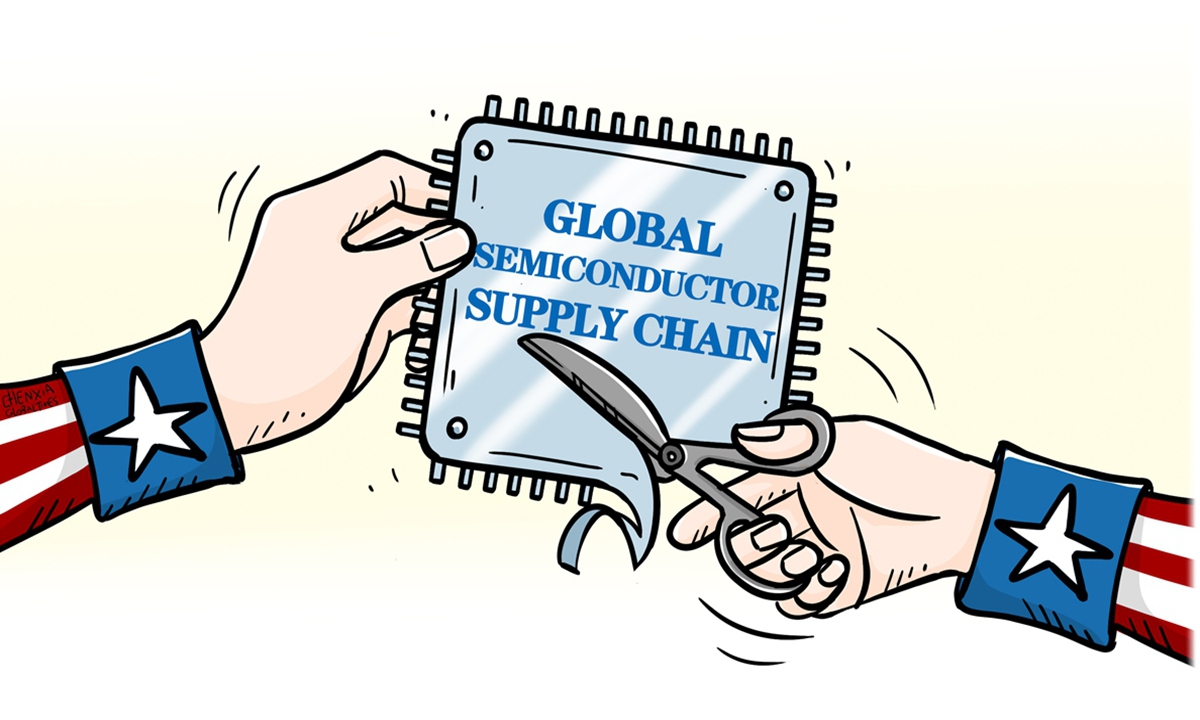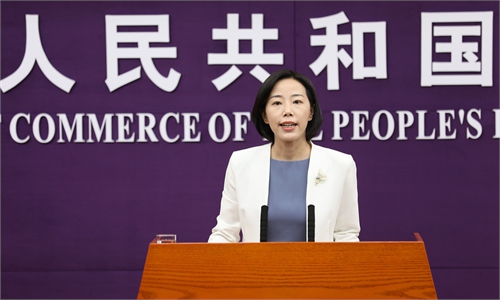Hype of ‘diversifying supply chains’ will not shake China’s legitimate protection of key materials for chipmaking

llustration: Chen Xia/GT
After China announced export controls of two key minerals for chipmaking - gallium and germanium, some Western media started their ill-intentioned hype. China's legitimate move is likely to accelerate moves to diversify supply chains away from the country, The Wall Street Journal claimed on Wednesday.
The report implies that China's move has aroused concerns of semiconductor sector in other economies, attempting to incite other economies to move their supply chain out of China. Yet, such hype will neither undermine China's semiconductor cooperation with other countries, nor will it shake China's legitimate protection of key materials for chipmaking.
In fact, there are no necessary connections between the two things. China's controls on exports of the two key materials are aimed at protecting national security and interests. China's export control is justifiable in terms of reason and law. Chinese authorities have said this is a common international practice and not targeted at any specific country, and the Chinese side informed the EU and the US prior to the announcement. Chinese commerce authorities also affirmed that the export control is not quota limitation, nor an outright ban, and companies that have obtained permits will still be able to export the materials.
As for whether semiconductor companies from other economies will relocate production from China or not, it is a much more complicated issue. The "China Plus One" strategy, which encourages companies to avoid investing only in China and diversify business into other countries, has been brought up in Western countries for some time, but China's supply chains have been proved to be resilient and its status as the world manufacturing hub is irreplaceable.
Now China's high-tech development is facing a great opportunity, but the US keeps escalating the chip war against China. The restrictive measures in the US have become hysterical, basically restricting all possible items. The US approach not only violates the principles of free trade in international trade, but also undermines WTO rules. In order to prevent the development of China's high-tech field, the US even does not hesitate to make its own companies pay the price.
The US is the real source of chaos across global supply chains. In recent years, the US has been rampantly suppressing the export of China's technology industry, seriously disrupting the global industrial chain, and making the world's major semiconductor production and exporting economies anxious. While coercing allies such as Japan, South Korea, and the Netherlands to join its high-tech suppression of China, the US has also adopted arbitrary bullying policies against the semiconductor industries of these economies.
The US has abused export control measures, continued to assault China's semiconductor sector and purposely decouple the global semiconductor market. The US' actions harm global free trade, ignoring international trade rules and trample on fair competition principle. The US' moves hinder global sci-tech exchanges and economic and trade cooperation and will backfire, Shu Jueting, spokesperson for China's Ministry of Commerce, said at a regular press briefing on Thursday.
The US and its allies are advised not to continue down the wrong path. The high-tech restrictive measures seem to restrict China, but in fact they are likely to backfire on themselves. Moreover, as the US continues to intensify restrictions and suppression measures that violate international trade rules, it cannot expect China not to fight back.
The author is a vice chairman of the China Society for World Trade Organization Studies in Beijing. bizopinion@globaltimes.com.cn



